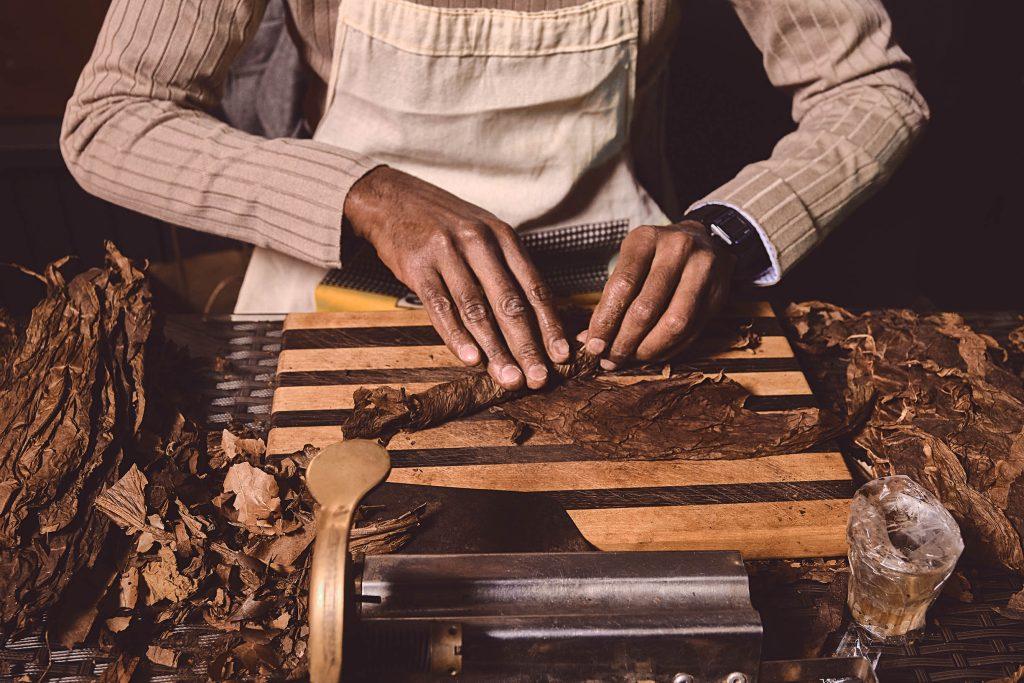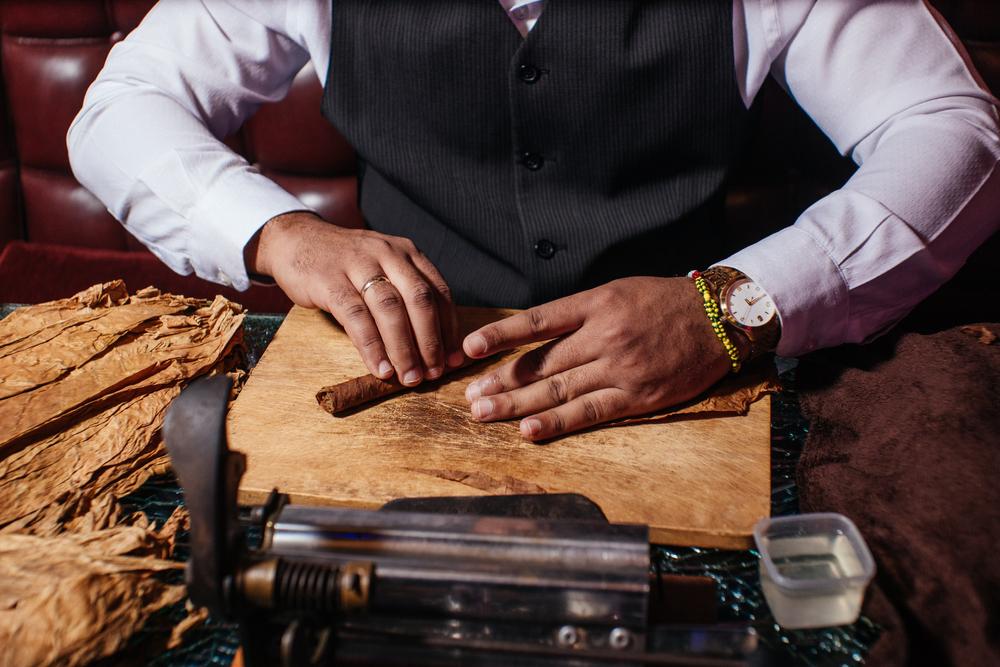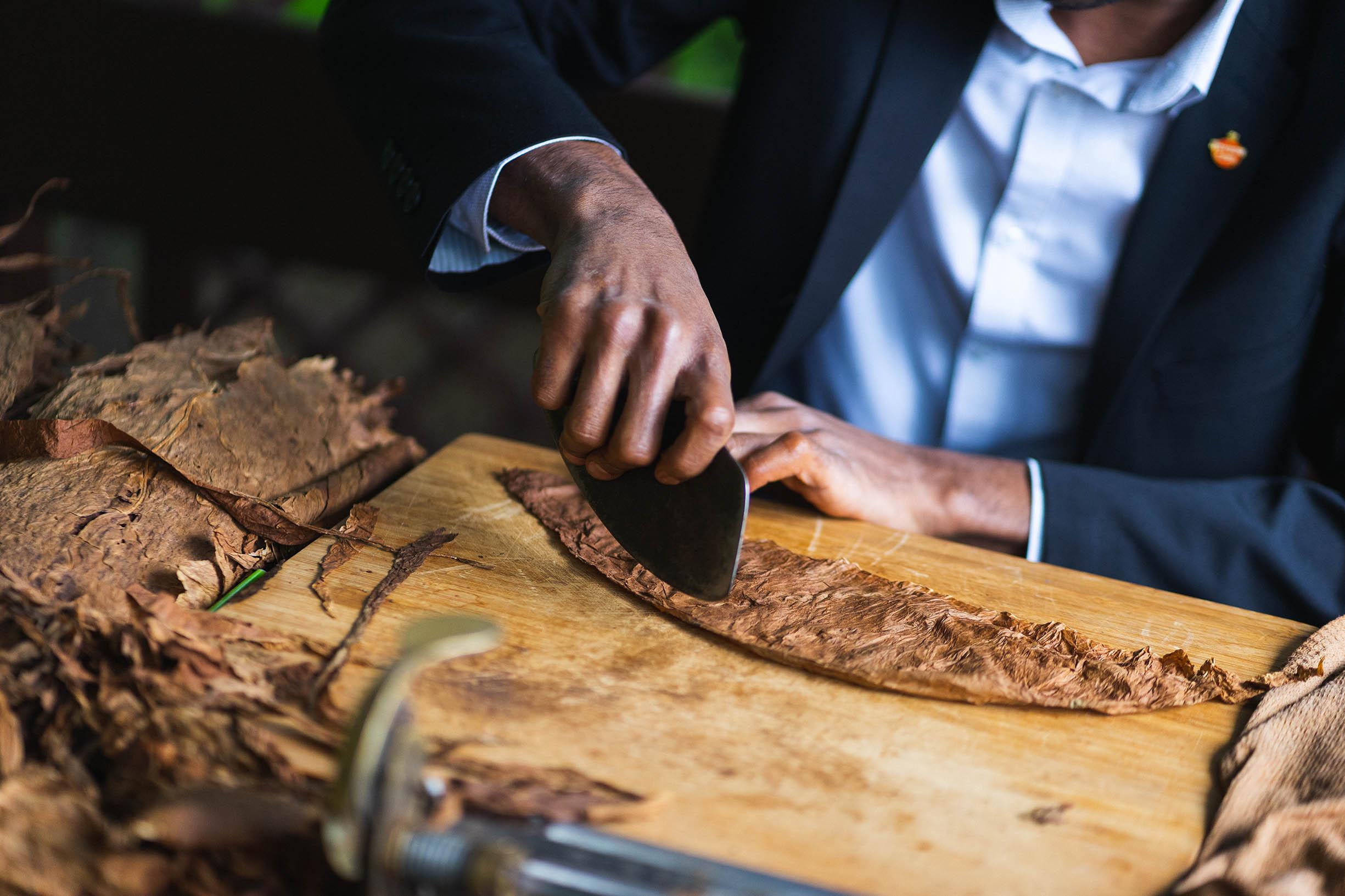Normally, when we enter the world of cigars we are overwhelmed with so many types of cigars, varying from their size, shape, flavors, leaves, etc. Maybe all of this is too much information for you. That’s why we decided to start introducing you to the world of cigars with a simple concept, but one that is essential for you to know in order to better enjoy your cigars. Today, you will learn the differences between a handmade cigar and a machine-made cigar.
How are cigars composed?
The first thing to know to differentiate between a handmade cigar and a machine-made cigar is the parts that make up the cigar. Five leaves make up every cigar:
- 3 called filler, which is the filling of the cigar.
- 1 leaf that wraps the filler, called Capote.
- 1 for called capa, this is the leaf that wraps the 4 previously mentioned.
Having established this, we can focus on what differentiates a handmade cigar from a machine-made cigar. This is the filler. Handmade cigars usually have a long filler, while machine-made cigars usually have a short filler.
Now we will see the different qualities that differentiate handmade and machine-made cigars.
Let’s start with the wrapper.

How the wrapper is made
A good handmade cigar is an exquisite experience, the perfect combination of pliable and finely trimmed tobacco leaf, binder, and filler bound together. The skilled roller expertly leaves the wrapper in its natural state and perfectly encases the inner components of the cigar. This rolling also allows for the wrapper to remain moist and lubricated with natural oils, so that when lit, it burns slowly and evenly.
Manufacturers of machine-made cigars often blend various materials to create an optimal wrapper, rather than relying solely on naturally occurring tobacco. This is because the wrapper must be able to stand up to the rigorous manipulation and production process required in machine-made cigars. In addition to tobacco, the wrapper can also include a variety of materials such as vegetable cellophane, paper, or plastics.

Smoke quality
A common assumption is that handmade cigars of high quality are superior to machine-made ones. This consensus has been around for a long time, with very objective and quantifiable reasons behind it. While the flavor of a cigar can be subjective, it is still possible to identify qualities that make a handmade cigar more enjoyable than its machine-made counterparts.
When it comes to smokeability, handmade cigars generally have a longer burn time and produce cooler smoke. This is because they are constructed via meticulous processes and with quality materials – unlike their machine-made counterparts, which are mass-produced with less care and attention to detail. Machine-made cigars tend to burn faster and therefore hotter than hand-rolled cigars, resulting in an uncomfortable burning sensation on the user’s tongue and throat.

Quality in filling and manufacturing
Manufacturers regularly create machine-made cigars using a variety of materials, such as paper, preservatives, and various chemicals. This is in stark contrast to hand-made cigars which consist of filler, binder, and outer wrapper made only from tobacco leaves. As a result, handmade cigars tend to have a richer flavor and more pleasing scent than those produced by machines. Furthermore, skilled artisans manually construct each cigar, resulting in a much higher quality of craftsmanship compared to mass-produced machine-made cigars.
What’s next?
Now that you know the differences between a good handmade cigar and a machine-made cigar. Usually, people who choose machine-made cigars, smoke very frequently, so it is more achievable for them to choose cigars that are more economical. Meanwhile, people who decide to enjoy their cigars in special or specific moments, therefore, prefer to pick cigars with a higher quality.
However, you will be able to decide judiciously among which cigar to taste. If after reading this blog you want to try a good handmade cigar, you can stop by our store and choose any of our cigars, all of them are handmade and made with the best materials.


